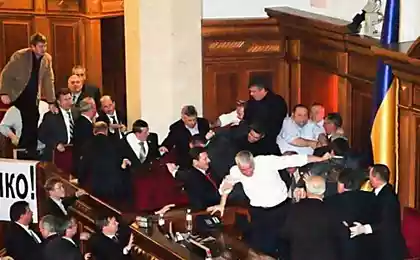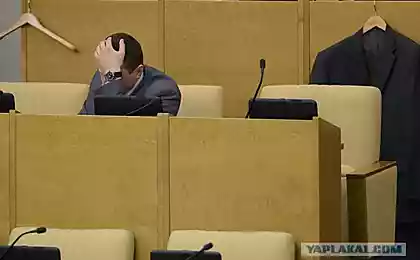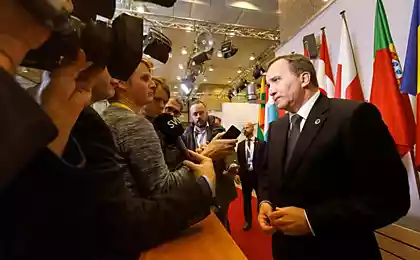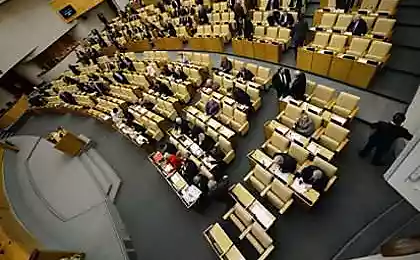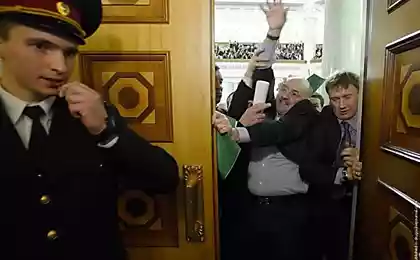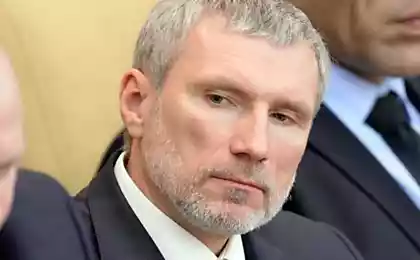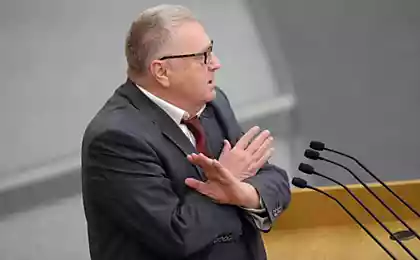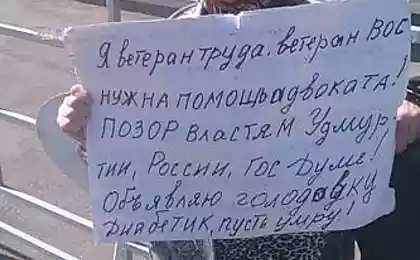567
Deputies thinking about banning Wi-Fi
On Monday, the Public Chamber held a round table with the participation of deputies of the State Duma Irina Spring and Andrei Lugovoy, a dedicated package of bills toughening measures to combat terrorism.
Discussed including a proposal to limit the size of the not personalized transfers via the Internet up to 1 thousand. Rub. a day and up to 15 thousand. per month. According to Spring, according to the criminal cases related to drug trafficking, 36% of money obtained through criminal gangs anonymous payments. "It is only disclosed. The shadow market - a much larger volumes, "- said the deputy. Child pornography - 100% with the use of anonymous payment. In short, "the anonymous money transfer system is needed not just a man - she needed a criminal. Our law does not affect the interests of ordinary citizens. The assurance that we want to ban online payments, is not true, "- said Spring. According to her, throughout the world there are similar bans, and the State Duma merely "analyzed the international experience." So that new laws - a "concrete modern tools to help our fighters against terrorism, cut off sources of funding that are beyond state control».
Spring supported the Deputy Secretary of the Public Chamber Vladislav Grib - he recalled that "normal citizens" 15 thousand. Per month - it is almost the average salary in the country. There are not as normal citizens to spend all their money on anonymous payments? "Yes, I'd better get a receipt and I will understand if payment is not passed! It's better than an anonymous payment ", - said fungus. And according to statistics of the first deputy chairman of the Duma Committee on Information Policy, Information Technologies and Communications Leonid Levin, 30 million Russians, using anonymous payments, transfer amount of not more than 500 rubles. Thus, the law will not hurt anyone - citizens will be able to "mild small amount to pay».
Levin also announced a legislative initiative on Wi-Fi: «It is necessary to restrict access to the Internet via Wi-Fi in airports and coffee shops. Verification of public access points - we have worked out the issue. In some countries, for example, be sure to send an SMS from your phone, and only if the user receives a password to access ", - explained the deputy. Fuel to the fire poured Vladislav Grib - according to him, via Wi-Fi in the café you can blow up a nuclear plant. He argued that it is impossible - security of nuclear power plants is not connected to the Internet. "I do not understand the system, - he parried the fungus. - We have a nuclear power plant is not connected. And somewhere - connected » . "Nowhere is connected - the norms of the IAEA," - again began to object to collect.
According to another bill, proposed to expand the powers of the FSB: "According to the law, is now more than fifteen structures can conduct a personal inspection of citizens, and the FSB is not entitled to it. It is clear that the elimination of this gap has long been needed, "- said a member of the Public Chamber Maxim Grigoriev.
MP Lugovoi supported his colleague. According to him, the amendments are good - the trouble is that the journalists "did not read what we offer." According to Spring, "it is such a speculative position that supposedly we are against the Internet and seeing in it something evil." In many countries, there are such thing as a cyber threat and cyber security. In France, even created a Directorate for Cybersecurity, "Does this mean that France is against the Internet? - Strictly said Irina Spring at the press. - So, dear journalists, do not distort the information and submit it falsely! "(Again, people stupid, do not you understand everything!)
However, not all members of the Public Chamber supported the scandalous initiative - says Elena Lukyanova, they do not create a real and effective mechanisms to combat terrorism and thus come into conflict with the existing legislation: "The bill, which allows to disclose user information in the Internet, violates laws privacy, the right to privacy of correspondence, telephone conversations, postal, telegraph and other communications, "- said in a press release of the Institute of monitoring the effectiveness of law enforcement in the Public Chamber.
utro.ru

Source:
Discussed including a proposal to limit the size of the not personalized transfers via the Internet up to 1 thousand. Rub. a day and up to 15 thousand. per month. According to Spring, according to the criminal cases related to drug trafficking, 36% of money obtained through criminal gangs anonymous payments. "It is only disclosed. The shadow market - a much larger volumes, "- said the deputy. Child pornography - 100% with the use of anonymous payment. In short, "the anonymous money transfer system is needed not just a man - she needed a criminal. Our law does not affect the interests of ordinary citizens. The assurance that we want to ban online payments, is not true, "- said Spring. According to her, throughout the world there are similar bans, and the State Duma merely "analyzed the international experience." So that new laws - a "concrete modern tools to help our fighters against terrorism, cut off sources of funding that are beyond state control».
Spring supported the Deputy Secretary of the Public Chamber Vladislav Grib - he recalled that "normal citizens" 15 thousand. Per month - it is almost the average salary in the country. There are not as normal citizens to spend all their money on anonymous payments? "Yes, I'd better get a receipt and I will understand if payment is not passed! It's better than an anonymous payment ", - said fungus. And according to statistics of the first deputy chairman of the Duma Committee on Information Policy, Information Technologies and Communications Leonid Levin, 30 million Russians, using anonymous payments, transfer amount of not more than 500 rubles. Thus, the law will not hurt anyone - citizens will be able to "mild small amount to pay».
Levin also announced a legislative initiative on Wi-Fi: «It is necessary to restrict access to the Internet via Wi-Fi in airports and coffee shops. Verification of public access points - we have worked out the issue. In some countries, for example, be sure to send an SMS from your phone, and only if the user receives a password to access ", - explained the deputy. Fuel to the fire poured Vladislav Grib - according to him, via Wi-Fi in the café you can blow up a nuclear plant. He argued that it is impossible - security of nuclear power plants is not connected to the Internet. "I do not understand the system, - he parried the fungus. - We have a nuclear power plant is not connected. And somewhere - connected » . "Nowhere is connected - the norms of the IAEA," - again began to object to collect.
According to another bill, proposed to expand the powers of the FSB: "According to the law, is now more than fifteen structures can conduct a personal inspection of citizens, and the FSB is not entitled to it. It is clear that the elimination of this gap has long been needed, "- said a member of the Public Chamber Maxim Grigoriev.
MP Lugovoi supported his colleague. According to him, the amendments are good - the trouble is that the journalists "did not read what we offer." According to Spring, "it is such a speculative position that supposedly we are against the Internet and seeing in it something evil." In many countries, there are such thing as a cyber threat and cyber security. In France, even created a Directorate for Cybersecurity, "Does this mean that France is against the Internet? - Strictly said Irina Spring at the press. - So, dear journalists, do not distort the information and submit it falsely! "(Again, people stupid, do not you understand everything!)
However, not all members of the Public Chamber supported the scandalous initiative - says Elena Lukyanova, they do not create a real and effective mechanisms to combat terrorism and thus come into conflict with the existing legislation: "The bill, which allows to disclose user information in the Internet, violates laws privacy, the right to privacy of correspondence, telephone conversations, postal, telegraph and other communications, "- said in a press release of the Institute of monitoring the effectiveness of law enforcement in the Public Chamber.
utro.ru

Source:


